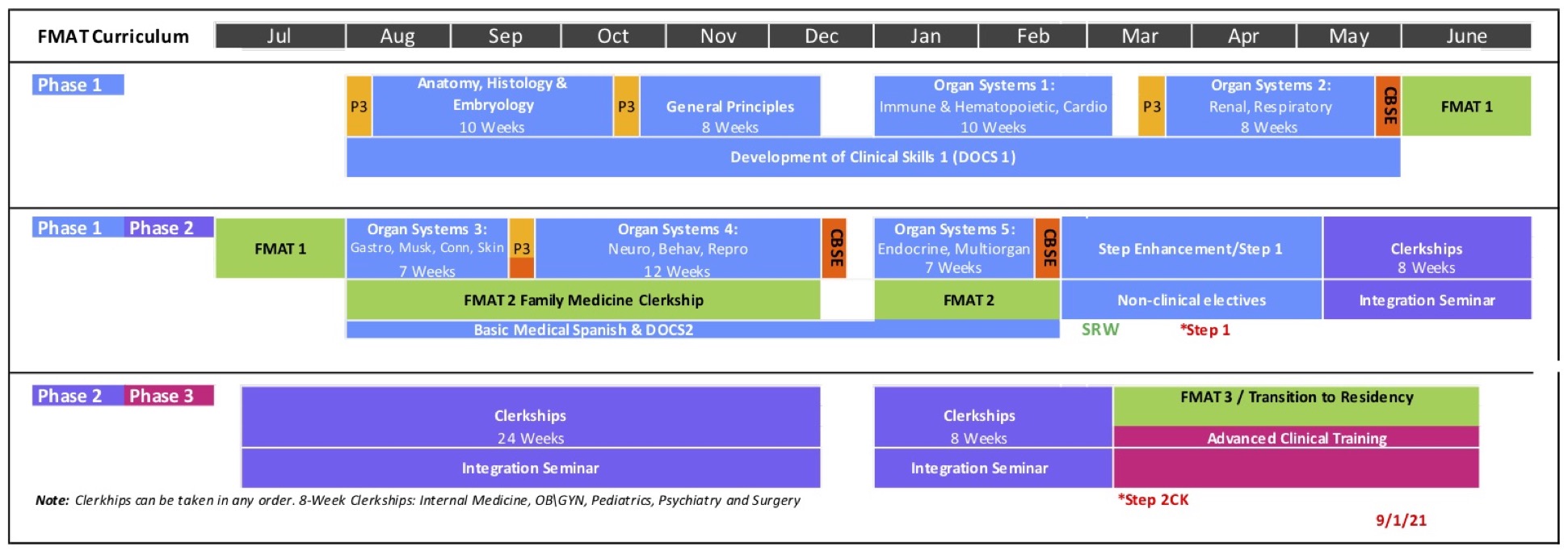FMAT | Curriculum
FMAT Curriculum and Learning Activities


FMAT students complete their predoctoral training in three years, following a curriculum modified slightly from the regular curriculum. The training program for FMAT students includes several innovative curricular activities that will ensure that students are prepared appropriately for their accelerated experiences:
FMAT1 Course
This 8-week concentrated course is taken during the summer between Year 1 and Year 2 under the supervision of Family Medicine and Basic Sciences faculty. This course prepares students to begin the Longitudinal Family Medicine Clerkship during Year 2.
Course Content:
- Overview and review of MS2 basic science course materials
- 8-week concentrated course in June and July
- Class meets 4-5 hours daily Monday through Thursday
- Case-based didactic and small-group sessions across 7 themes with both basic science and family physician facilitators: cardiovascular, respiratory, endocrine/gastroenterology, musculoskeletal, women's health/urology, neuropsychiatry, dermatology
- Clinical and pathophysiology correlations material, focusing on skills for patient assessment
- Evaluation includes daily quizzes, a weekly OSCE and two exams.
FMAT2 Course
Students participate in a Longitudinal Family Medicine Clerkship course in August-February of Year 2
Course Content:
- Family Medicine clerkship course objectives and content
- Conducted primarily during Tuesday and Thursday mornings, August through May
- Outpatient clinic and inpatient hospital service, including a longitudinal experience during the spring on the students' clinical clerkship campus
- Geriatrics and palliative care experiences
- Additional student enrichment activities
- Increasing independent responsibilities with clinic and hospital patients
- Evaluation includes shelf exam, OSCE and other family medicine clerkship evaluations
FMAT3 Course
This 16-week capstone experience taken during the March-June rotation of Year 3 to fulfill the learning objectives for experiences normally required in Year 4, including selectives and the Transition to Residency: Individualized Asynchronous Learning (TRIAL) course.
Course Content:
- ICU and critical care, including time for the Longitudinal Clinical Skills Exam
- 1 month Family Medicine inpatient service, including time for Step 2CK exam
- Additional outpatient experiences
- Students participate in May graduation exercises but do not complete coursework until the end of June
- Evaluation includes assessments used for the Family Medicine sub-I and critical care experiences
